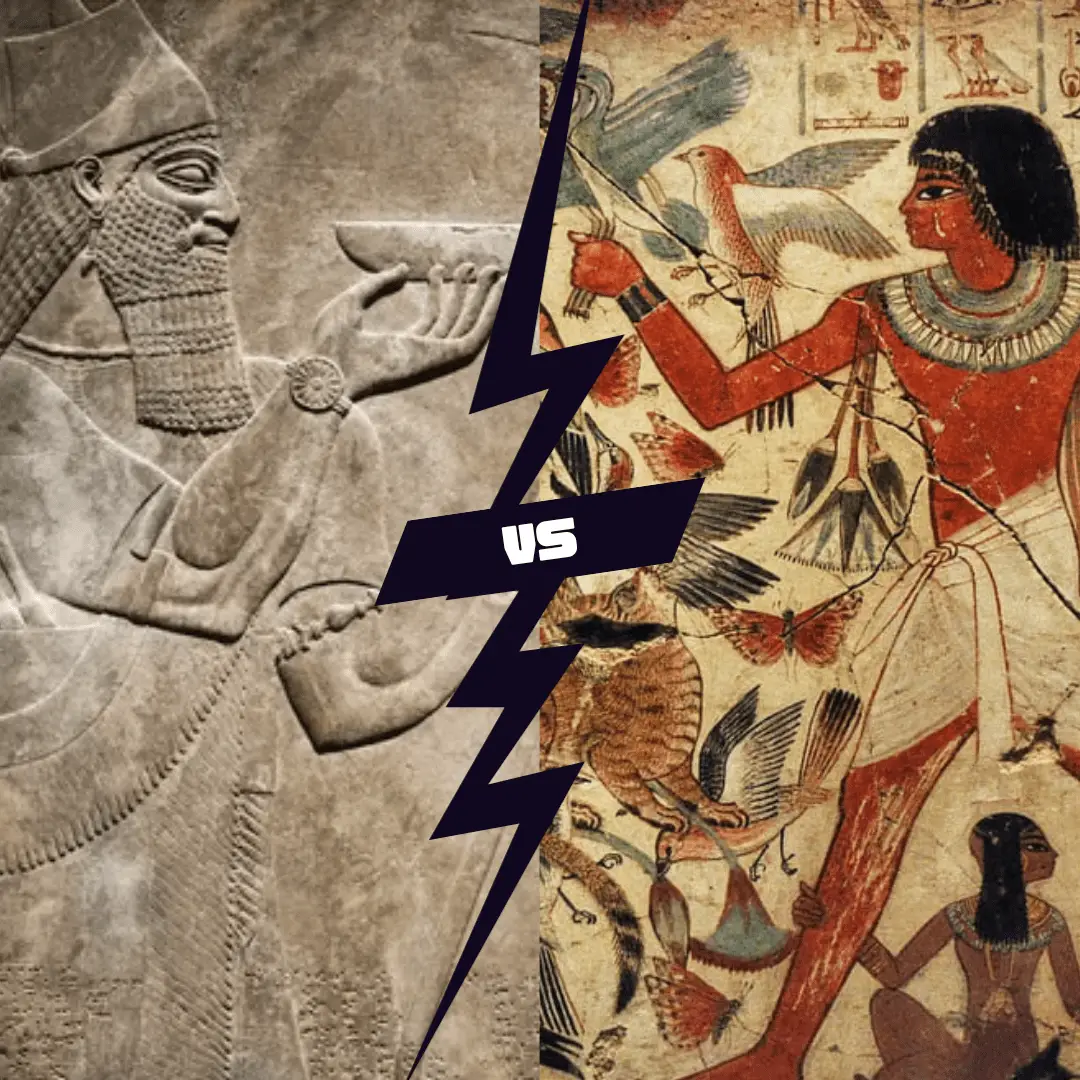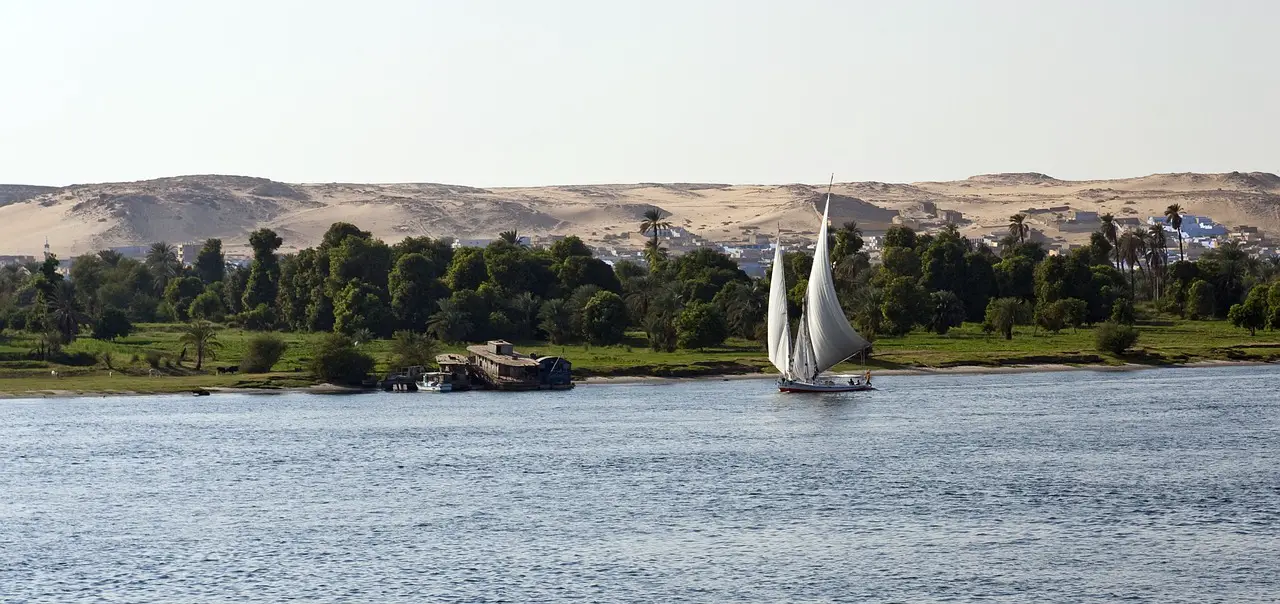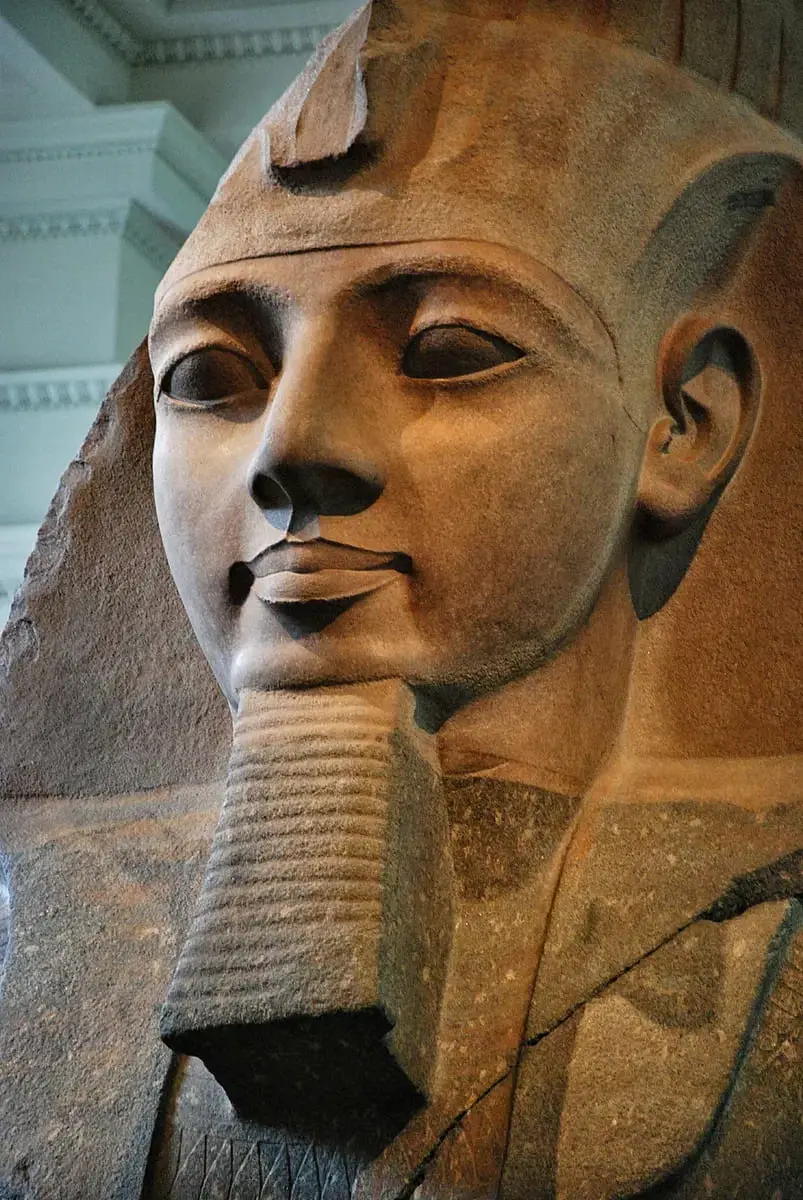
A deep dive into the annals of history often resurrects the classic debate in academia and historical circles: why is Ancient Egypt better than Mesopotamia? At the onset, both these cradles of ancient civilizations hold innumerable secrets and have laid the bedrock for the modern world in myriad ways. But many scholars assert there’s a regal sheen to Ancient Egypt that Ancient Mesopotamia, for all its glory, seemingly lacks. Why is this the case? Let’s traverse through the sands of time to the Nile and the fertile landscapes where once these ancient powerhouses thrived.
Table of Contents
The Timeless Splendor Of The Nile River

The Nile River, an artery running through the heart of Egypt, was far more than just a waterway for the Ancient Egyptians; it was their lifeblood, a perennial source of life that bestowed regularity and richness in contrast to the less predictable rivers like the Tigris and Euphrates in Mesopotamia. The lush Nile Valley served as the canvas upon which the vibrant tapestry of Egyptian civilization was woven, from the golden age of the Old Kingdom to the zenith of the New Kingdom.
Geographical Advantages That Favored Egyptian Civilization
Egypt enjoys the advantage of being nestled within the protective embrace of deserts and cradled in the lower reaches of the Nile, an ideal scenario that Mesopotamia, located in the volatile Middle East along the volatile Fertile Crescent, couldn’t match. This assuaged the severity of foreign invasions, allowing Egyptian society to focus on growth rather than defense.
The Stalwart Social Structure Of Ancient Egypt
Both Egypt and Mesopotamia were structured in terms of social classes. However, some might say there was a sharper sense of order and cohesion in Ancient Egyptian social hierarchy. A sense of stability permeated through Egyptian culture, with Pharaohs, or god-kings, ruling with seemingly divine authority. This centralized power under the Pharaohs was more pronounced than the divided city-states of Mesopotamia.
The Systems Of Writing

Another remarkable feature of these ancients was their systems of writing. While the cuneiform script of Ancient Mesopotamian civilization undoubtedly shaped the early forms of recording information, the hieroglyphics of Ancient Egypt combined both artistic expression with codified knowledge, inscribing them in stones, temples, and tombs — making them more enduring than the clay tablets of Mesopotamia.
Art For Eternity: Egyptian Art
Egyptian Art is one of the most celebrated aspects of their culture. The precision and extravagance are displayed in the construction of the Great Pyramid, along with countless temples and monuments, and the treasures within, pulling an upper hand over Mesopotamia. One can scarcely find an equivalent to these grandiosities in Mesopotamian antiquity.
Farming Tools And Innovations
When it comes to agriculture, both ancient civilizations were innovative. However, the Egyptians, with the stable inundation of the Nile River, could predict the flooding season and used ingenious farming tools to increase crop yield. They maximized every inch of the arable land in the Nile Valley, all the way from Upper Egypt to Lower Egypt, a stark contrast to the less predictable agricultural yields in Mesopotamia due to irregular flood patterns.
The Enigma Of Egyptian Kings And The Power of Their Dynasties

The captivating tales of Egyptian kings and the grand dynasties, like that of the formidable pharaoh Ramses II, have etched their names in golden letters in the pages of ancient history. The enduring fascination with their reigns overshadows the city-state rulers of Mesopotamia, no matter how influential they might have been.
The Icons Of Civilization
Both Mesopotamia and Egypt held sway over the ancient Near East and influenced subsequent empires, including the Roman Empire and civilizations like the Indus Valley. However, the Ancient Egyptian civilization, with its colossal monuments, pyramids, and an intricate network of tombs replete with art and treasure, brings together a spectacle unseen in the ancient world. This splendor is curated in world-renowned institutions like the Metropolitan Museum and the Oriental Institute, bringing pieces of Egypt to global audiences.
The Rosetta Stone And The Lingering Echo Of Egyptian Languages
The deciphering of the Rosetta Stone in 1822 allowed linguists to finally understand the ancient writing of Egypt, while many texts of ancient Mesopotamians remain a puzzle to this day.
The Egyptian vs. Mesopotamian Approach To Afterlife
In Egyptian culture, the preparation for the afterlife was as important as living itself, reflected in their elaborate burial customs and mummification. Egyptian society celebrated death as a transition, not an end, constructing massive pyramid tombs as passages to eternity. In contrast, Mesopotamian civilization had a darker view of the afterlife, focusing less on monumental burial practices and more on a somber existence in the world beyond.
Similarities And Differences
When we compare and contrast Mesopotamia with Egypt, it becomes evident that the latter shines not only due to its chronological endurance but also its pervasive influence on successive ancient civilizations. There is a reason why tales of pharaohs enthrall us and why the images of the Sphinx and the pyramids epitomize antiquity: the essence of Ancient Egypt captivates, connects, and conquers the imagination unlike any other.
In conclusion, Egypt seems to outshine Mesopotamia in grandiosity, orderliness, artistry, spiritual depth, and enduring legacies. Whether it’s through the cultural infiltration visible in our museums, academic pursuits, or even the fantasy of pop culture, Ancient Egypt’s bettering of Mesopotamia is asserted in the collective consciousness of civilization. The dramatism of Egyptian history, with its clarity and artistic expression left in stone for us to behold, always seems to offer something more profound than what the distant, dust-filled plains of Mesopotamia can whisper.